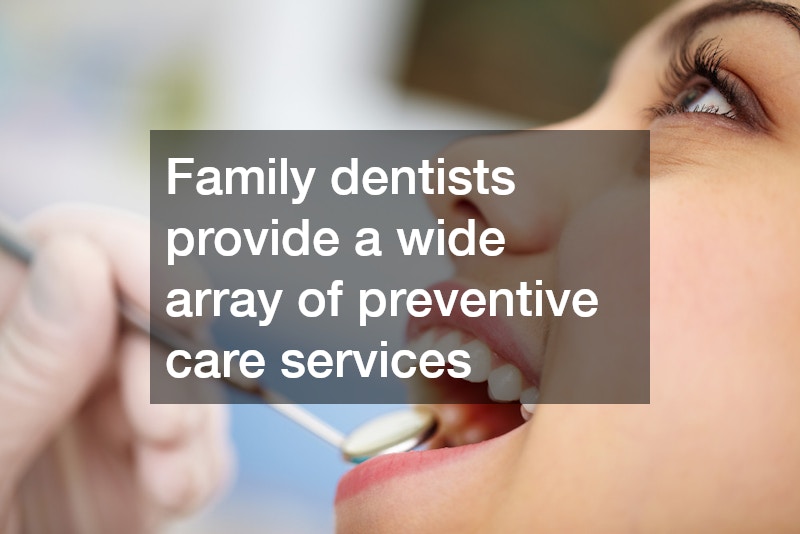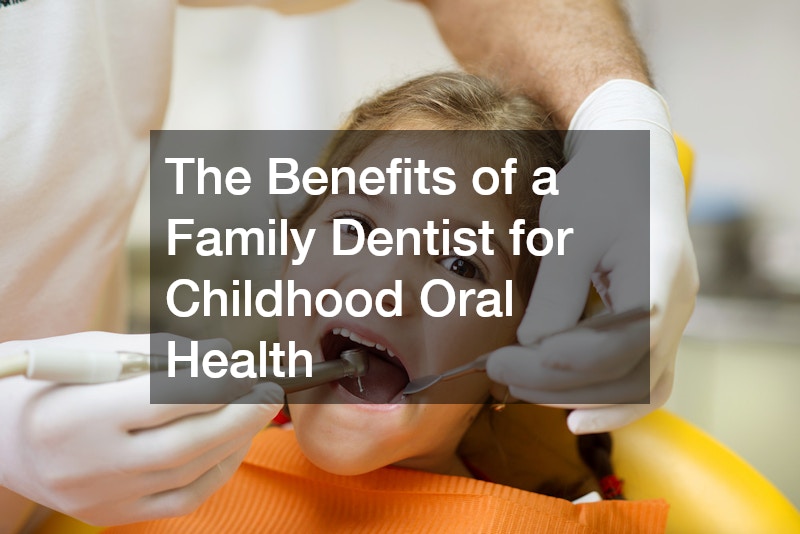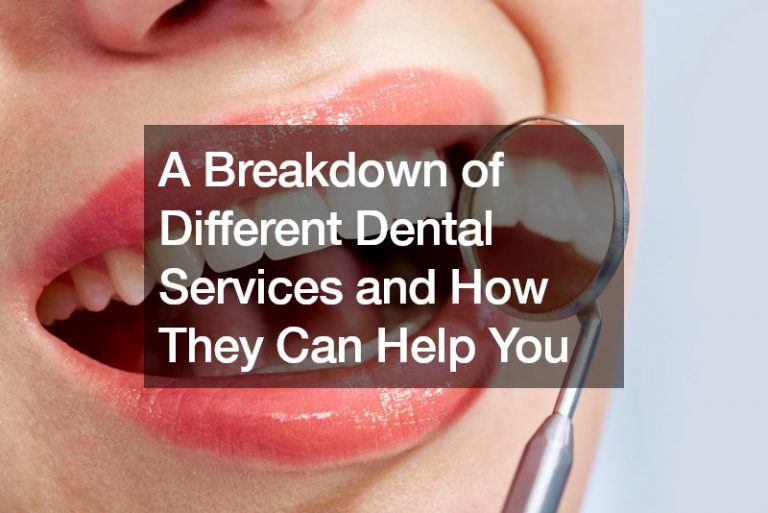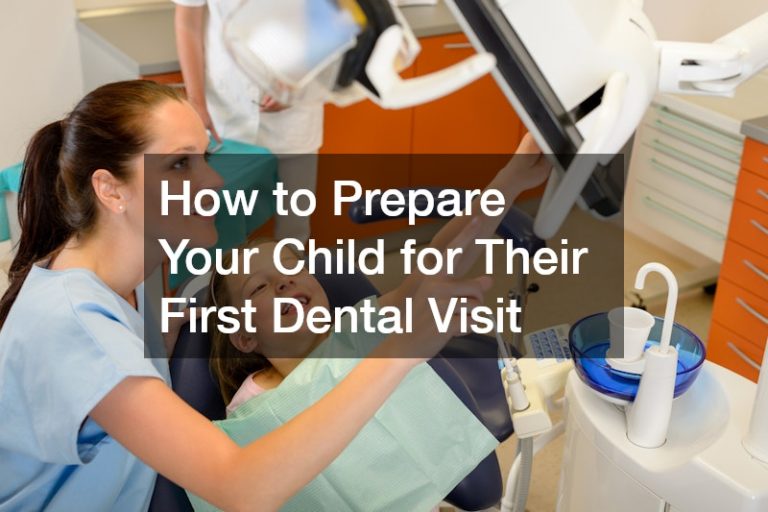The Benefits of a Family Dentist for Childhood Oral Health
There are multiple significant advantages of having a family dentist for your child’s oral health needs. A family dentist can provide ongoing care that caters to every member of the family, ensuring that children receive the best dental hygiene and preventive care from an early age. Establishing a relationship with a family dentist encourages children to view dental visits positively, setting the foundation for a lifetime of good oral health habits.
Having consistent care from a familiar dentist can alleviate the fear and anxiety that often accompany dental appointments, making visits less stressful for both children and their parents.
The Main Advantages
Having a family dentist offers a holistic approach to dental care tailored for children as well as adults. The familiarity of a family dentist can significantly enhance the child’s comfort level, as they grow up visiting the same practitioner regularly. Children often feel more secure in a familiar environment where their dentist understands their needs and concerns, which helps develop trust and reduces anxiety over time. A family dentist is capable of accommodating special needs or dental conditions unique to children, allowing for personalized care that evolves alongside the child’s developmental stages.
Furthermore, the ability to cater to multiple family members means less hassle when scheduling appointments, allowing for greater convenience for busy parents. This comprehensive care system ensures that dental records are accessible and can be reviewed more efficiently, allowing for consistent and coordinated treatment strategies. Some family dentists also offer flexible scheduling that can combine visits for various family members, making dental care not only effective but also more manageable for parents.
Moreover, family dental care often emphasizes preventative measures, which are especially crucial in childhood. With a family dentist, families can benefit from an emphasis on education regarding oral hygiene practices during every visit. This proactive approach ensures that both parents and children receive consistent guidance on maintaining healthy habits at home, thus leading to an overall improvement in the family’s oral health environment.
Dealing With Dental Anxiety
Family dentists are well-trained in managing children’s dental anxiety by incorporating child-friendly techniques aimed at fostering a relaxed atmosphere. Such techniques can include the use of engaging visuals, gentle communication, and supportive dialogue that helps reassure children. This approach not only comforts anxious children but can also help establish a positive viewpoint about dental care as they transition into adulthood. Children are more likely to develop good oral health habits if their early experiences at the dentist are positive.
Additionally, many family dentists offer distraction techniques that can quell anxiety, such as allowing children to watch movies or listen to music during procedures. This entertainment helps divert attention away from the dental work being performed, making the experience more enjoyable for the child. Practices that focus on creating a fun environment also help demystify the dental process, which can further reduce fear and anxiety associated with future visits.
Building a trusting relationship between the child and the family dentist takes time but is crucial for long-term dental health. A dentist’s ability to understand and communicate with children, along with recognizing signs of fear, plays a significant role in reducing anxiety. Over time, a supportive dentist can help cultivate a healthy attitude towards dental visits that persists into adulthood, ultimately encouraging regular check-ups and preventative care.
Preventive Care Services
Family dentists provide a wide array of preventive care services that are essential for maintaining children’s oral health. Regular check-ups are crucial in detecting dental issues early on, allowing for prompt treatment and management. This proactive approach is imperative for preventing cavities and other oral health problems that can arise during critical development stages. Moreover, during these visits, family dentists can assess a child’s growth and development, ensuring that their teeth and jaws are aligning correctly.
Fluoride treatments are another key service that family dentists typically offer. These treatments help strengthen tooth enamel, making it more resistant to decay, which is particularly important for children’s developing teeth. Family dentists also provide dental sealants, a thin protective coating applied to the chewing surfaces of back teeth that significantly reduces the risk of cavities. As part of preventive care, dentists frequently educate parents and children about good dietary choices and proper brushing and flossing techniques.
The holistic approach to preventive care also means that family dentists often involve families in discussions about the importance of maintaining good oral hygiene at home. Regular oral hygiene routines established at a young age can help instill good habits that last a lifetime. Family dentists can also assist in navigating any dietary influences on oral health, ensuring that children understand the importance of making healthy choices to support their dental wellbeing.
Overall Oral Health
Having a single family dentist enhances continuity of care, which can greatly improve overall family oral health. This continuity makes it easier for dentists to understand the family’s dental history, monitor changes, and adapt treatment plans accordingly. By having a shared provider, families can ensure that dental records are seamlessly integrated, resulting in better coordinated care tailored to the needs of every family member. When a dentist knows the unique health concerns and genetic predispositions of each family member, they can provide more effective individualized care.
Moreover, continuity in care fosters a strong partnership between the family and their dentist, encouraging open communication and better engagement. Families who routinely visit the same dentist can collaboratively discuss health goals, such as reducing cavities or improving overall dental education. This teamwork can instill a sense of accountability among family members, as they encourage each other to stay consistent with their dental health routines and attend regular check-ups.
In essence, having a family dentist establishes a foundation for oral health education within the household. Parents can model good behaviors for their children during these dental visits, reinforcing the importance of dental care. As children observe their parents prioritizing oral health, they are more likely to adopt similar attitudes, thereby creating an environment that naturally leads to improved overall family health.
A family dentist plays a crucial role in promoting and maintaining children’s oral health from an early age. By providing tailored care, supportive environments, and preventive services, family dentists ensure that children build a lifetime of healthy dental habits. Establishing a relationship with a family dentist not only makes dental health management easier but also creates a foundation for positive experiences that can last a lifetime. Families that prioritize regular dental visits with a trusted family dentist are taking proactive steps toward securing better oral health for all their members.







